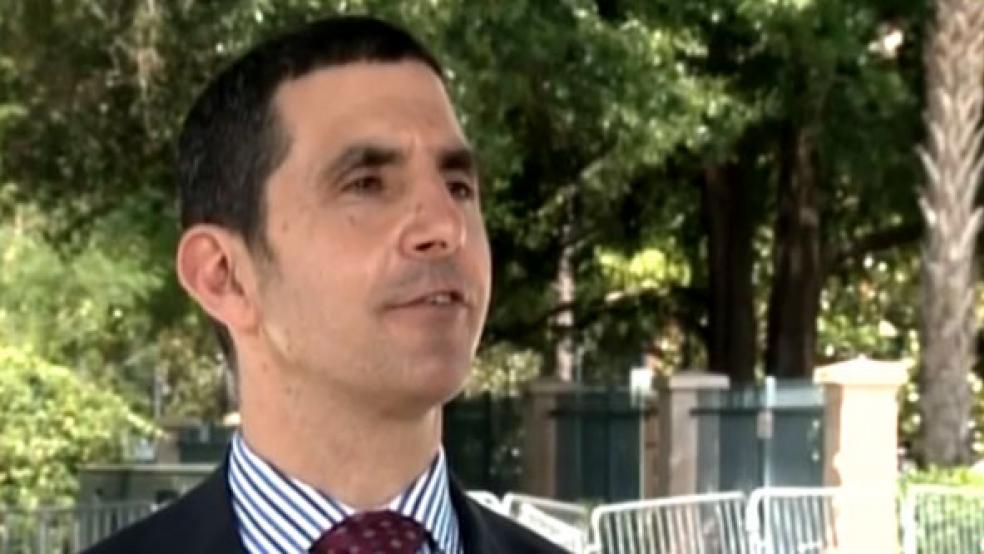Despite having spent the last quarter of a century as a research analyst covering banks and other financial institutions, until this year Mike Mayo had never attended an annual meeting. “I didn’t think I needed to; I could get access to the management independently,” he explains. (At least, when the banks in question were talking to him: Mayo is known among bank execs as a gadfly, asking persistent and persistently irritating questions.)
This year’s annual meeting season, however, has made Mayo a convert. Once he might have been ranked among those who scoffed at the tradition as a 20th century holdover (or something still more dated) that simply wasn’t needed in the 21st century. Then Mayo, who now works for CLSA, a brokerage and research firm that is a division of France’s Credit Agricole, got fed up with trying to hold banks to higher governance standards via what he thinks of as the conventional route. He tried publishing critical research reports, talking to the media, even writing a book and testifying to the Financial Crisis Inquiry Commission, only to see Wall Street (in his view) return to business as usual. Mayo’s decision? Try to get his message to the banks’ directors, to whom CEOs and business division heads are accountable.
It’s a smart move. Shareholders own the companies in which they invest, collectively, and the boards of directors work for and are accountable to shareholders. And yet the vast majority of investors – including professional money managers and analysts like Mayo – spend far more time with management than with the board.
On one level that makes sense: Business decisions that will have the most immediate and significant impact on a company’s bottom line and thus its share price are made by management, not boards. But if you’re concerned about a company’s long-term strategy, the board is where you need to concentrate your attention. The board of directors hires CEOs, for better or worse: J.C. Penney’s board hired Ron Johnson (and later accepted his resignation), while directors at Yahoo recruited Marissa Mayer.
RELATED: Mike Mayo's 5 Keys to Better Shareholder Meetings
In their turn, directors are accountable to investors to a degree that it’s easy to overlook: The elections of board members at annual meetings may feel pro forma, but just wait to see what happens to those JPMorgan Chase directors who ended up earning the support of less than an overwhelming majority of the bank’s shareholders this spring. And there’s legal accountability, too: If anything, a director’s liability to the shareholders has only increased over the last decade or so.
So Mayo is right to turn to annual meetings in his ongoing quest to improve governance. While it’s far too early to say that this will prove any more successful a strategy (in his eyes) than penning a research report with a “sell” recommendation or putting forth his own views on what kinds of reform measures are still needed on Wall Street, remains to be seen. But Mayo, at least, is happy with what he heard in from directors at the four banks whose meetings he opted to attend this year: JP Morgan Chase, KeyCorp, Citigroup and Morgan Stanley. “This is the way to get the directors to publicly commit to actions or goals or standards – things they can then be measured on,” Mayo says.

Specifically? Mayo says he is delighted by the fact that Morgan Stanley’s directors have said they expect to reach their financial objectives by 2014 (previously, no one had set a specific time frame); that JP Morgan board members say that the bank’s much-criticized risk management committee will undergo a shakeup; that the compensation plan at KeyCorp has been tweaked so as to ensure that management actually improves efficiency. If none of those things materialize, well, the directors can be confident that Mayo will be back next spring, holding their inaction up to the light of day.
There’s no guarantee that Mayo will find annual meetings as rewarding as he hopes they will be. Right now, he is full of the zeal of the convert, and excited by having found a way to access board members. He has even started publishing the photos of directors of the institutions he tracks in his research reports, reasoning that they are as important for investors to become familiar with as household names like Jamie Dimon and Lloyd Blankfein.
For annual meetings to become a hotbed of substantive debate will require more than just one analyst peppering board members with a lot of questions, just as governance activists have found strength in numbers. “I hope,” Mayo says, “that a lot of other investors will start treating these as gatherings that are important and helpful.”






